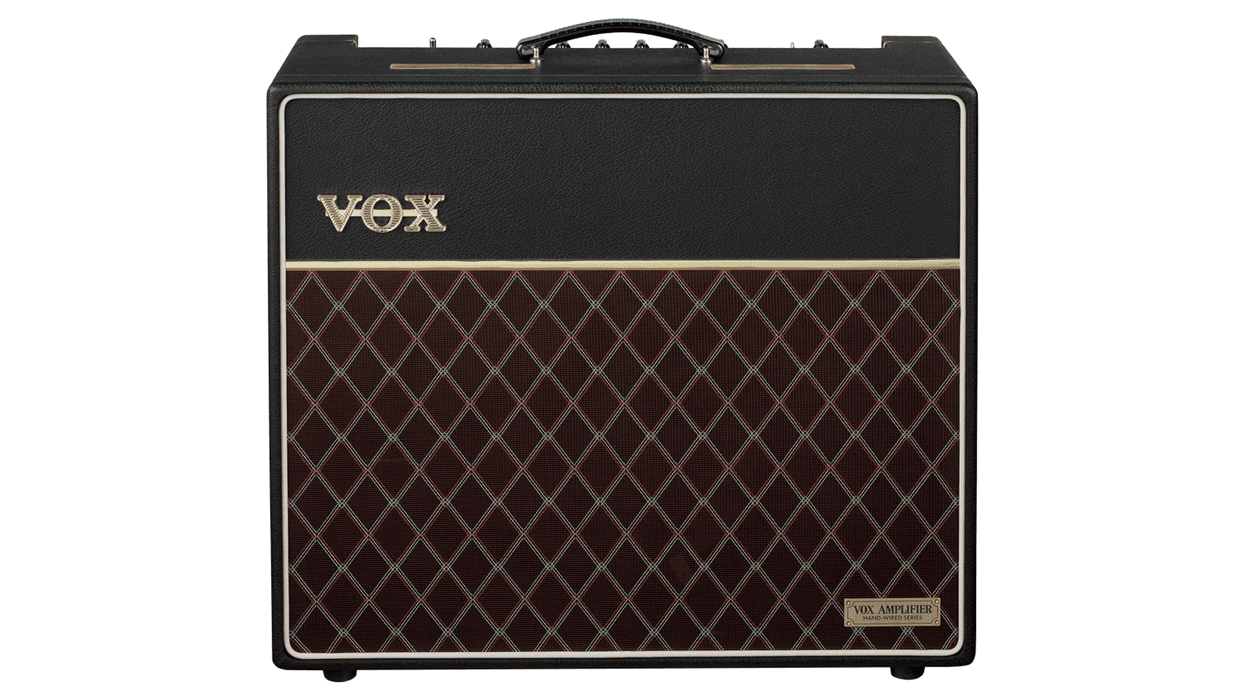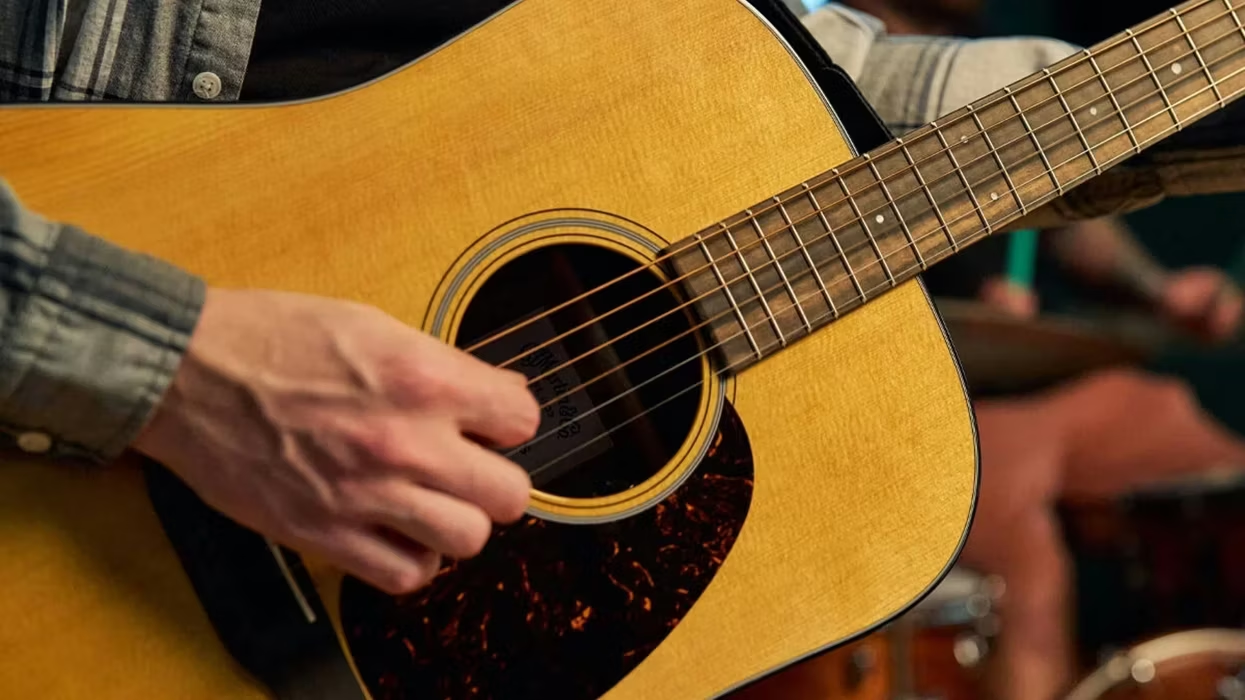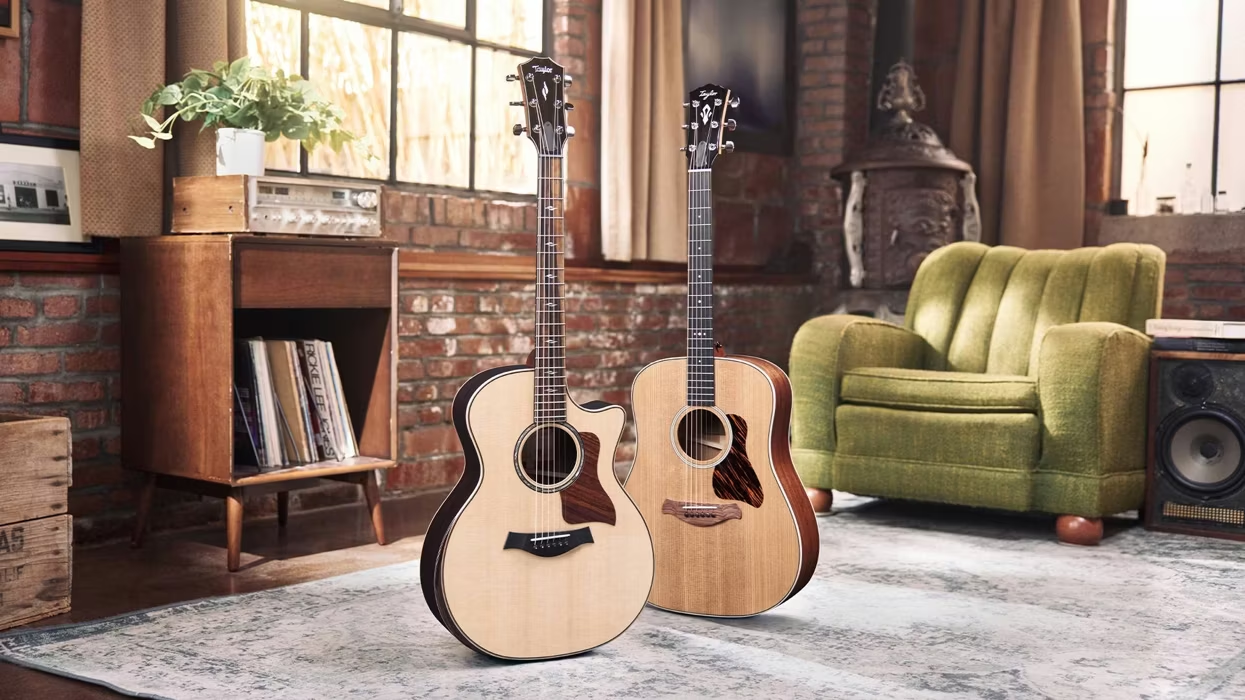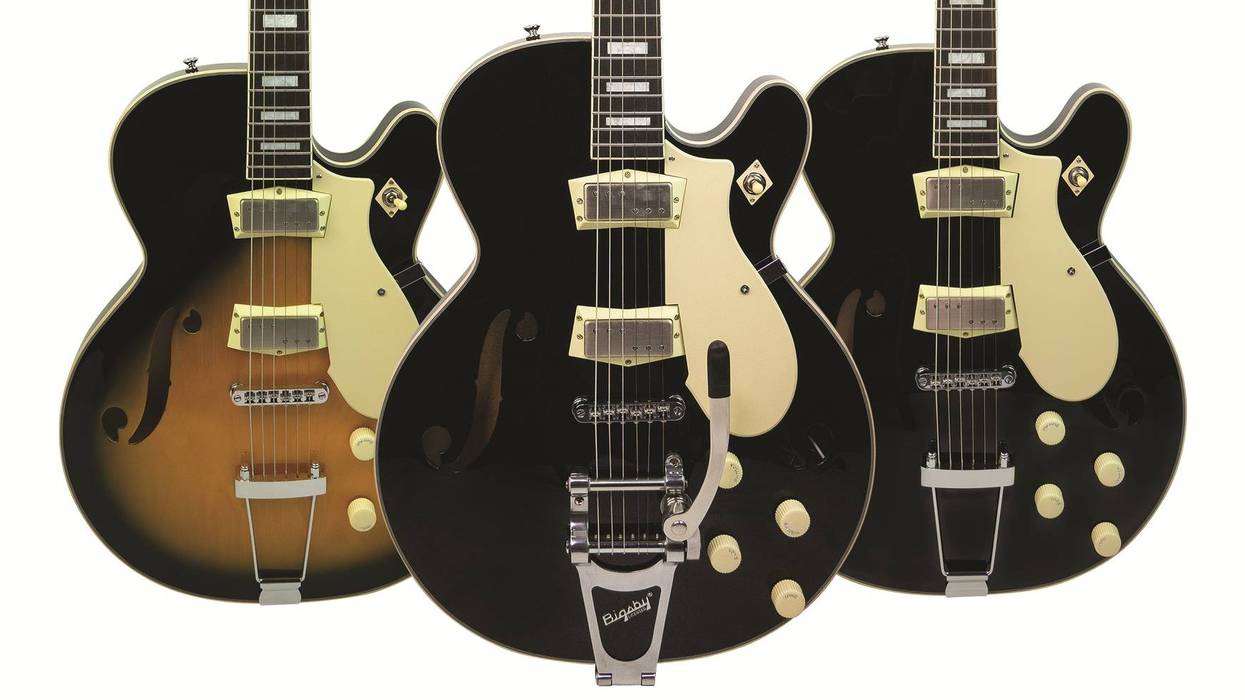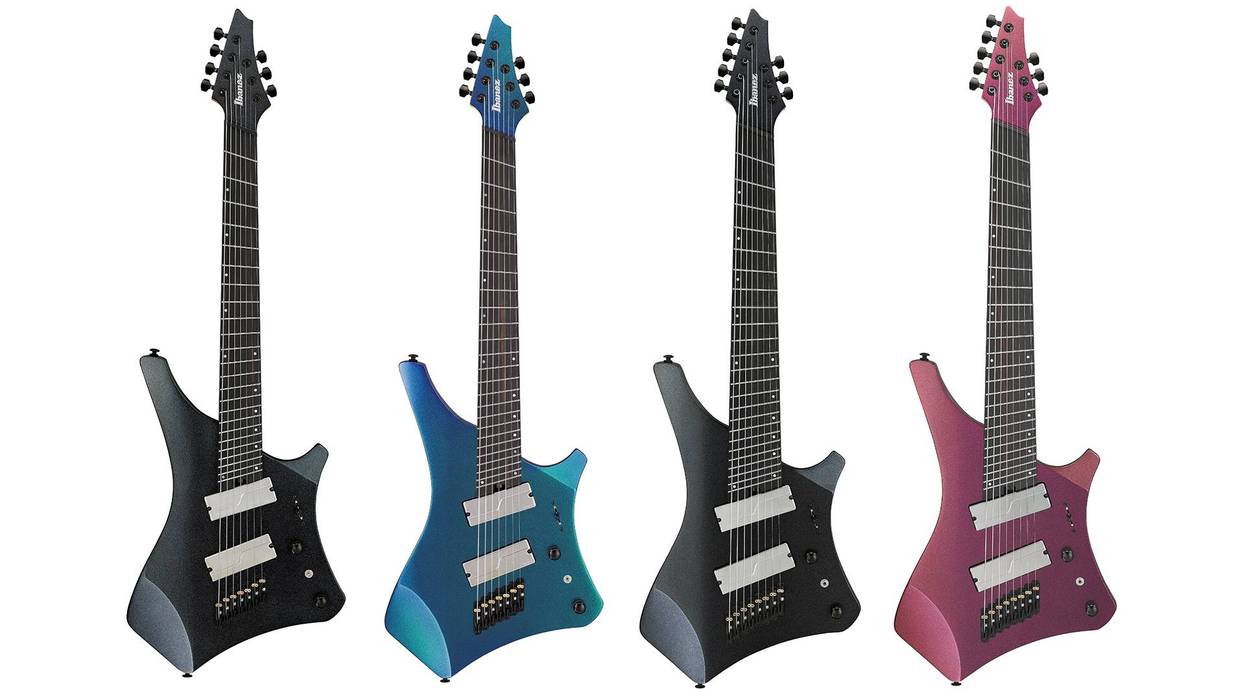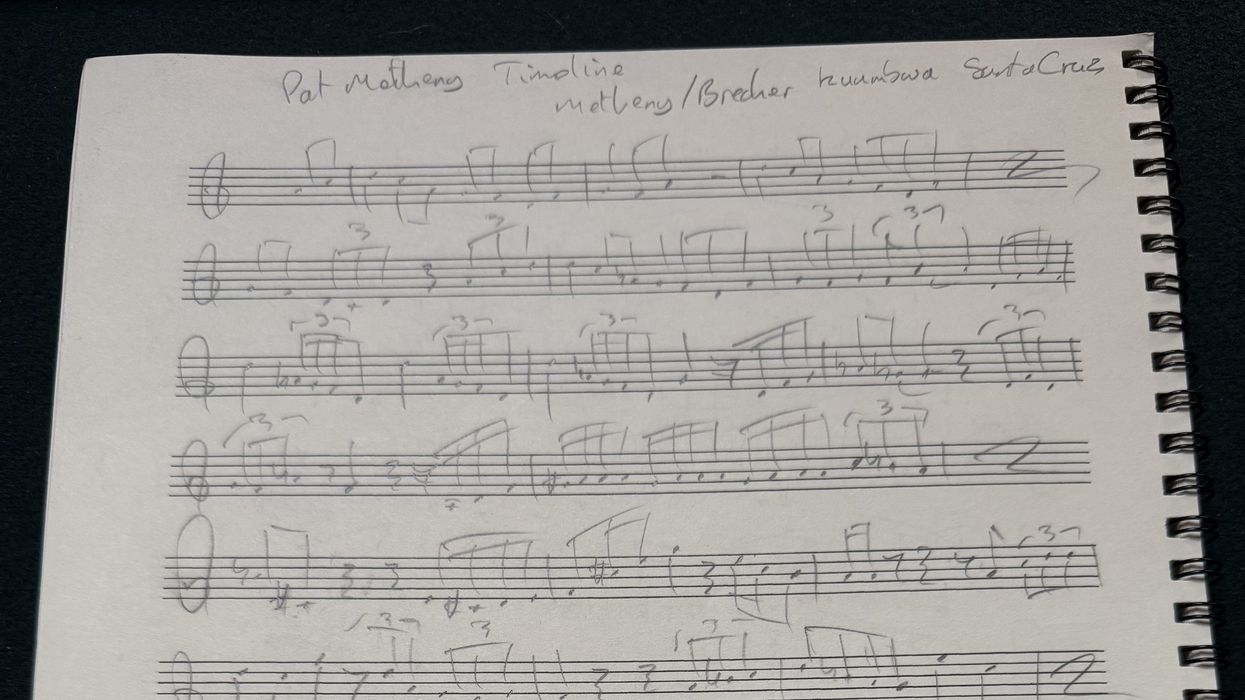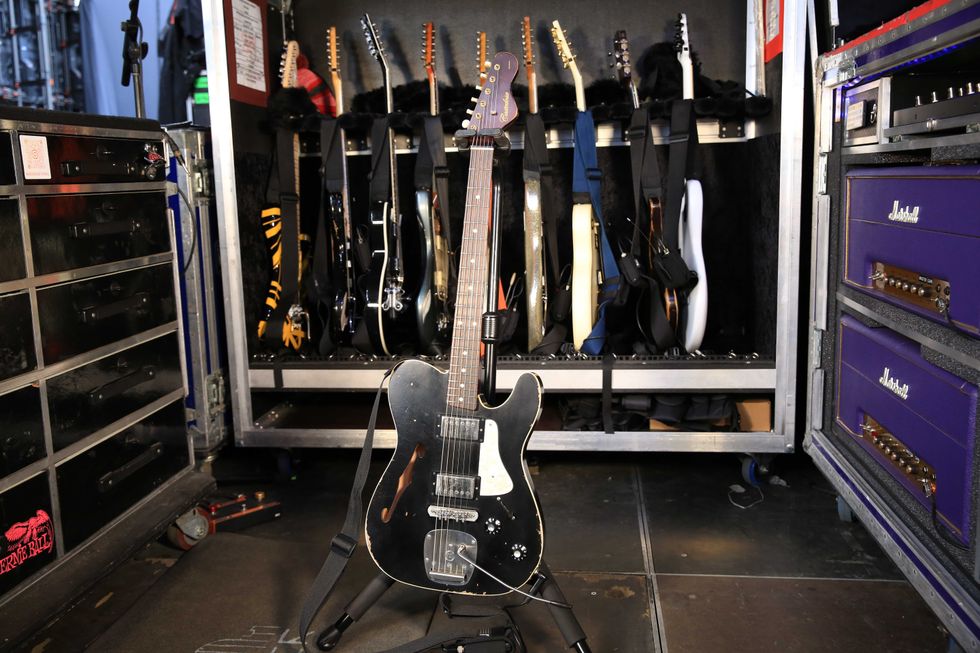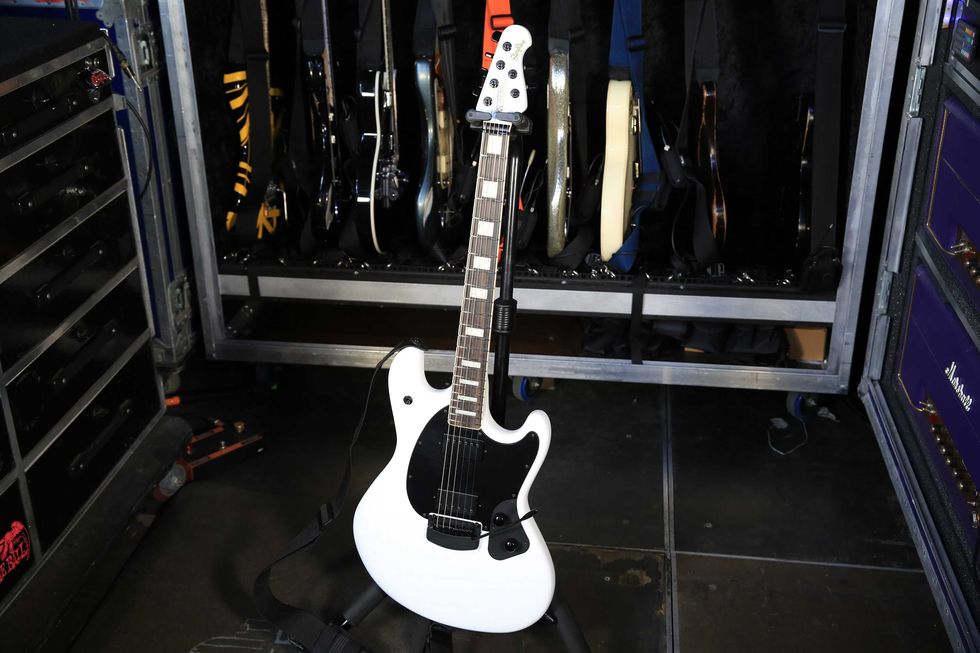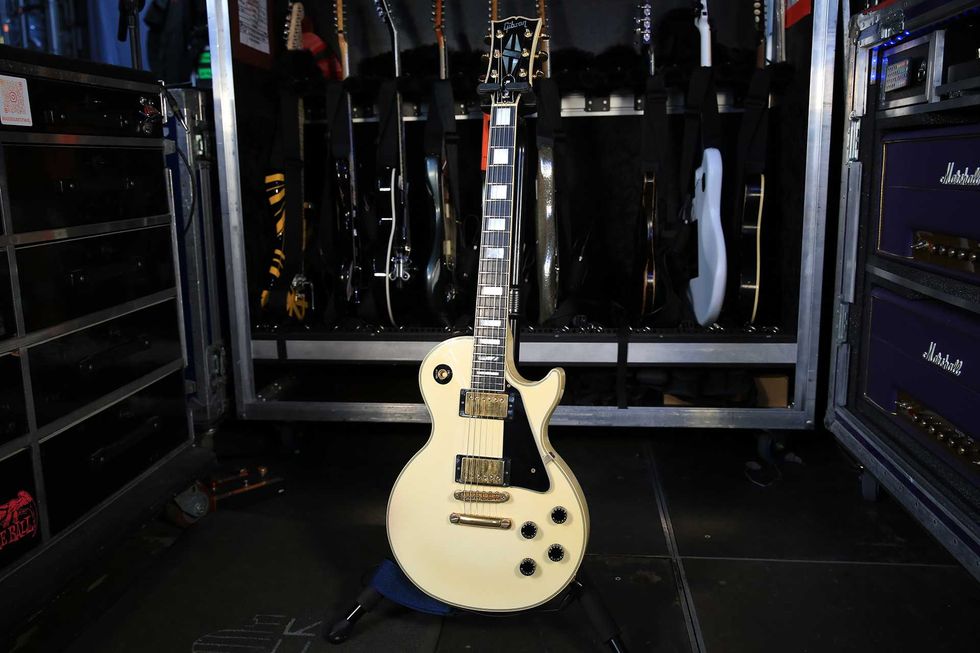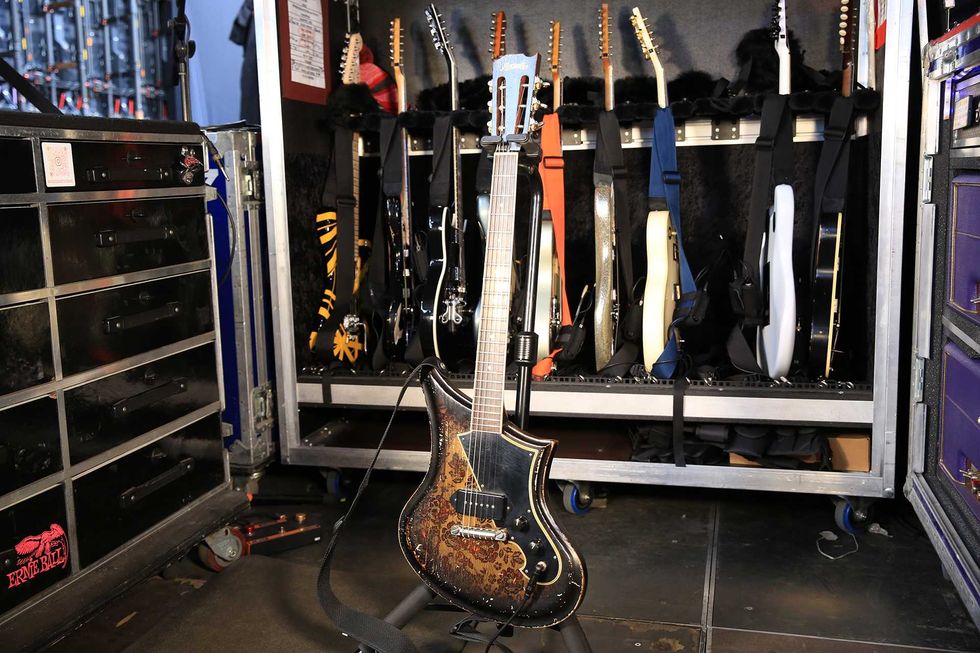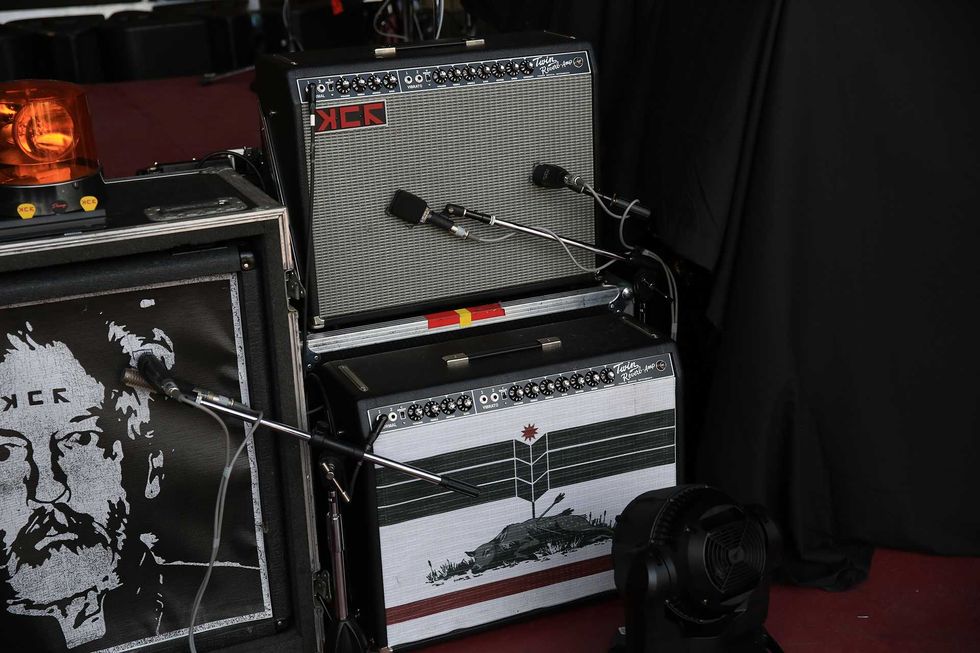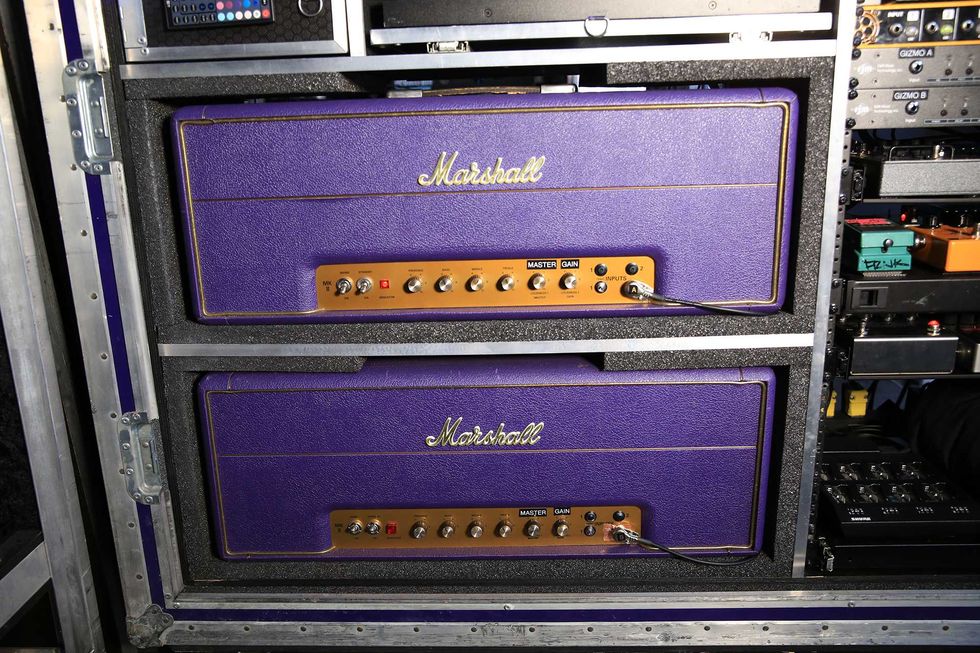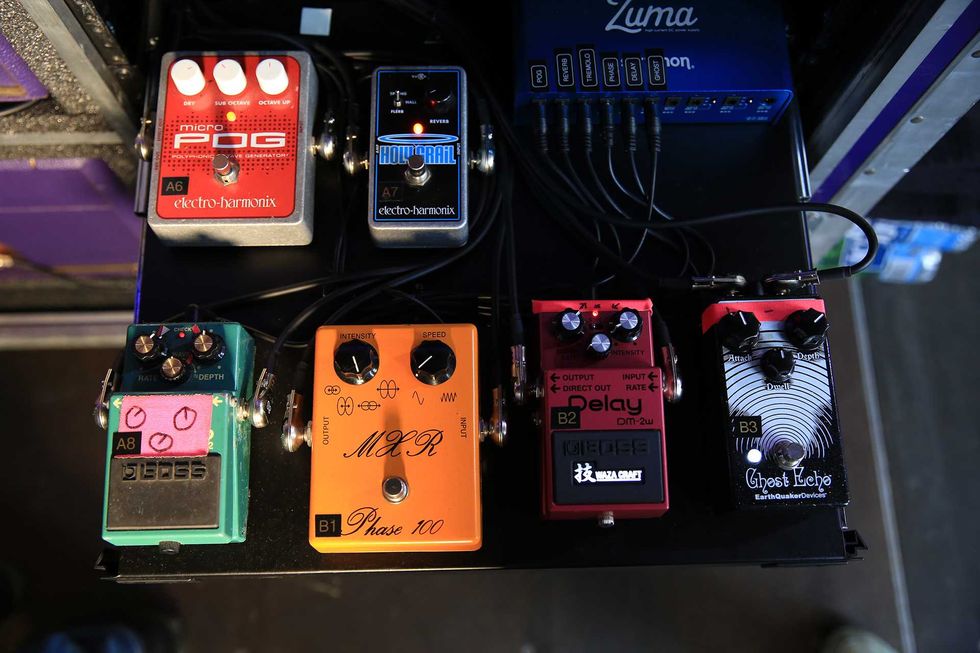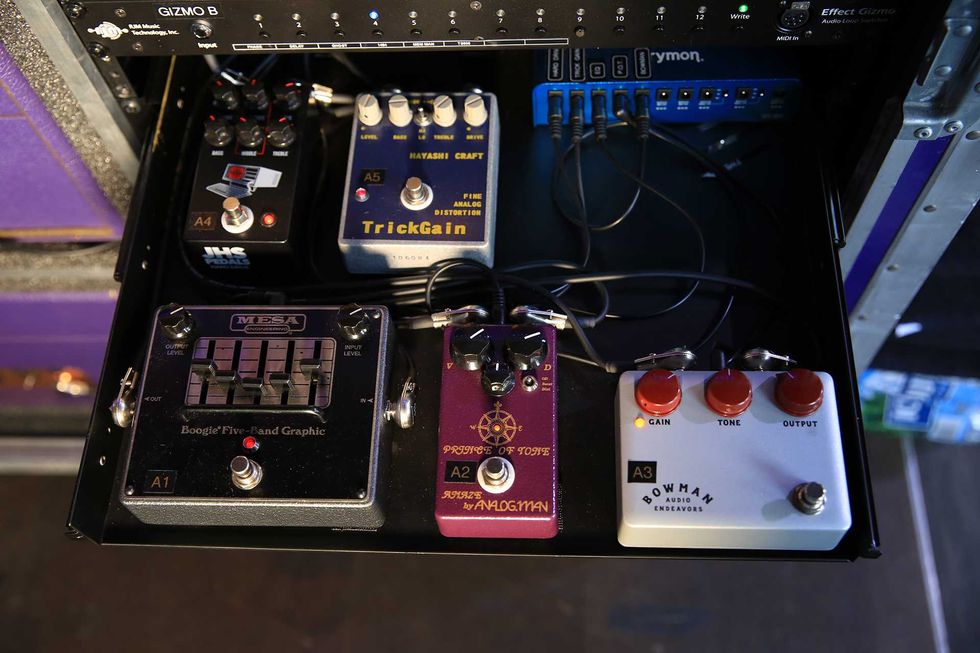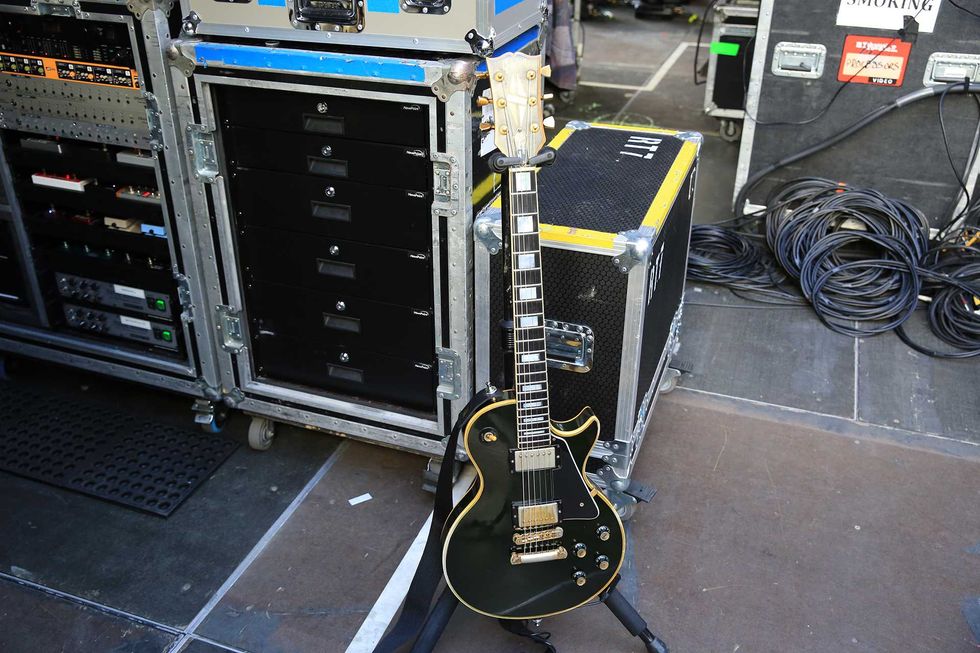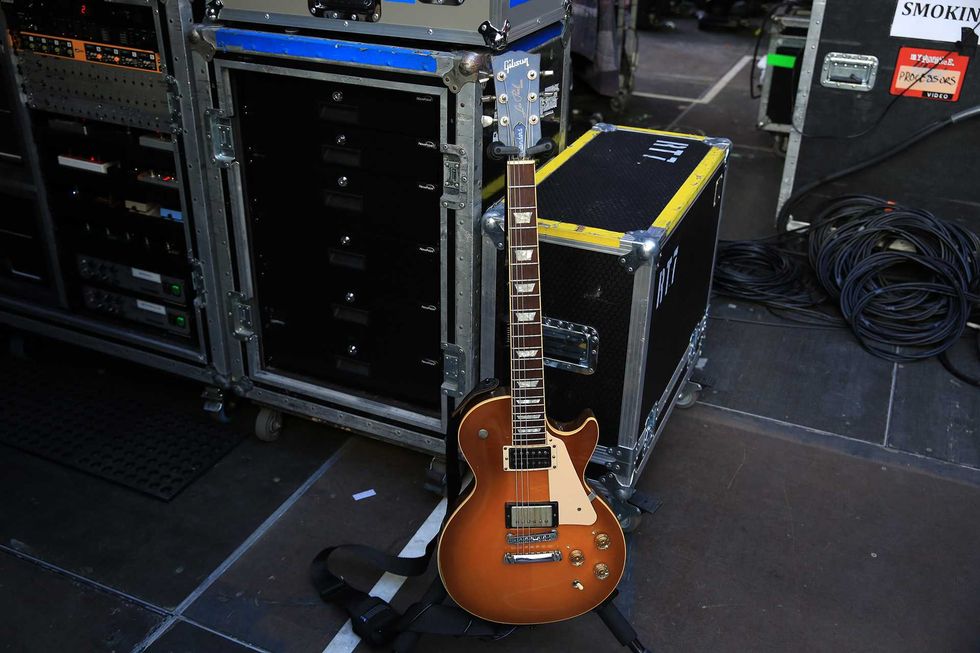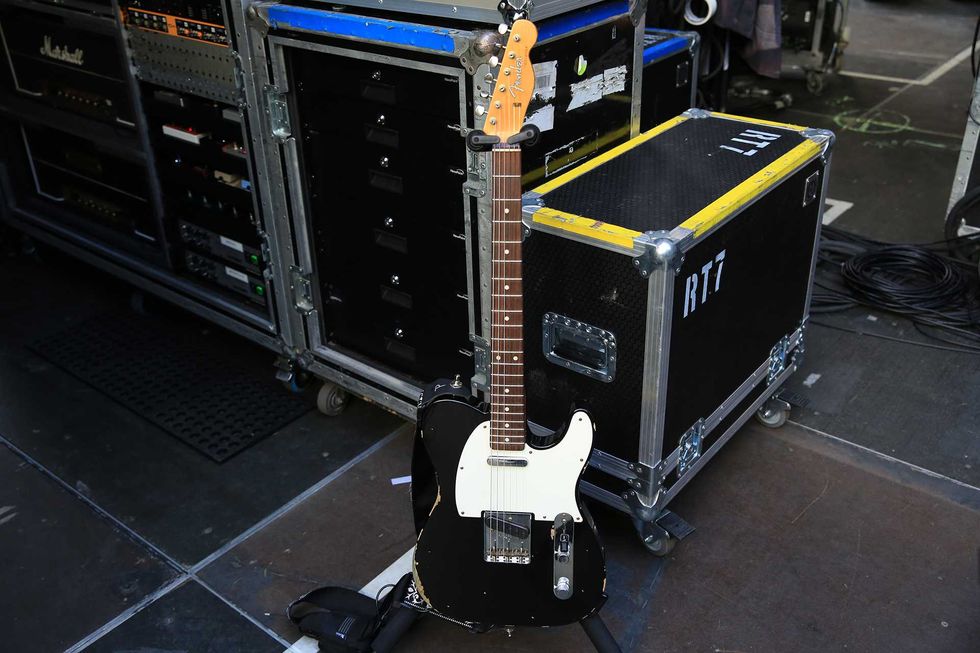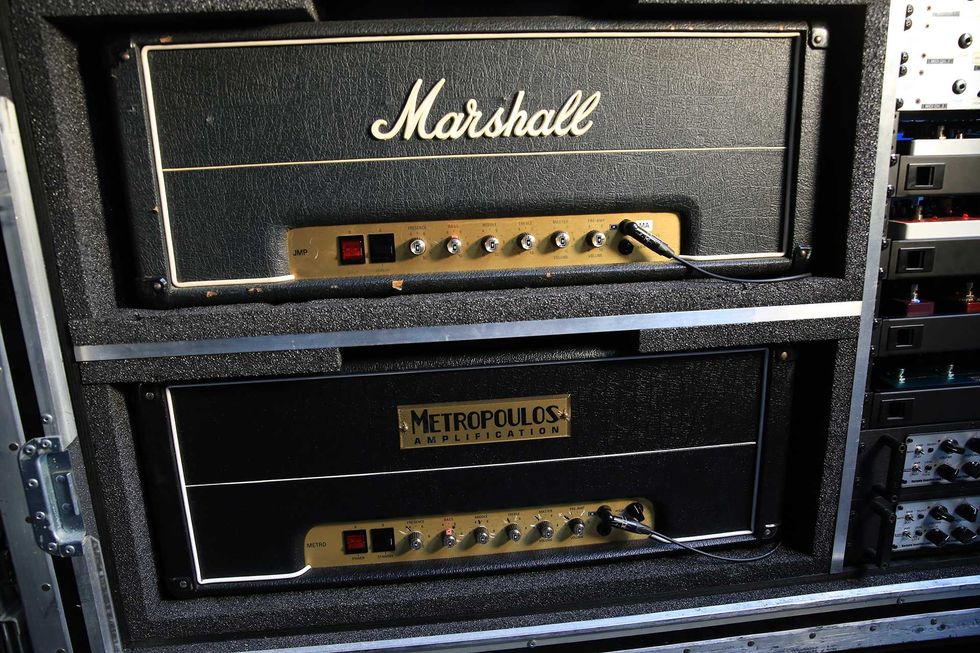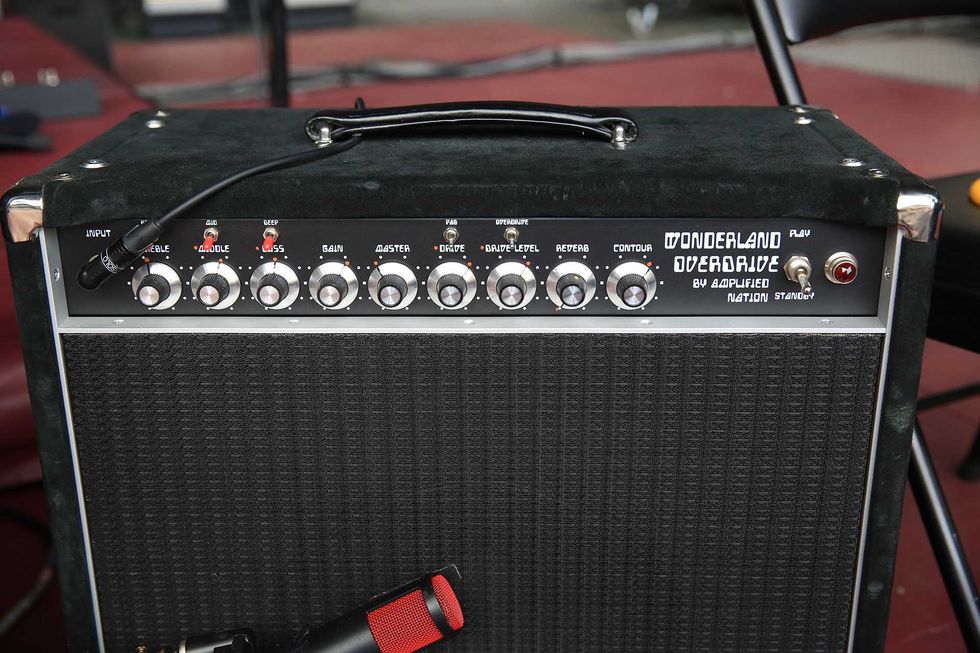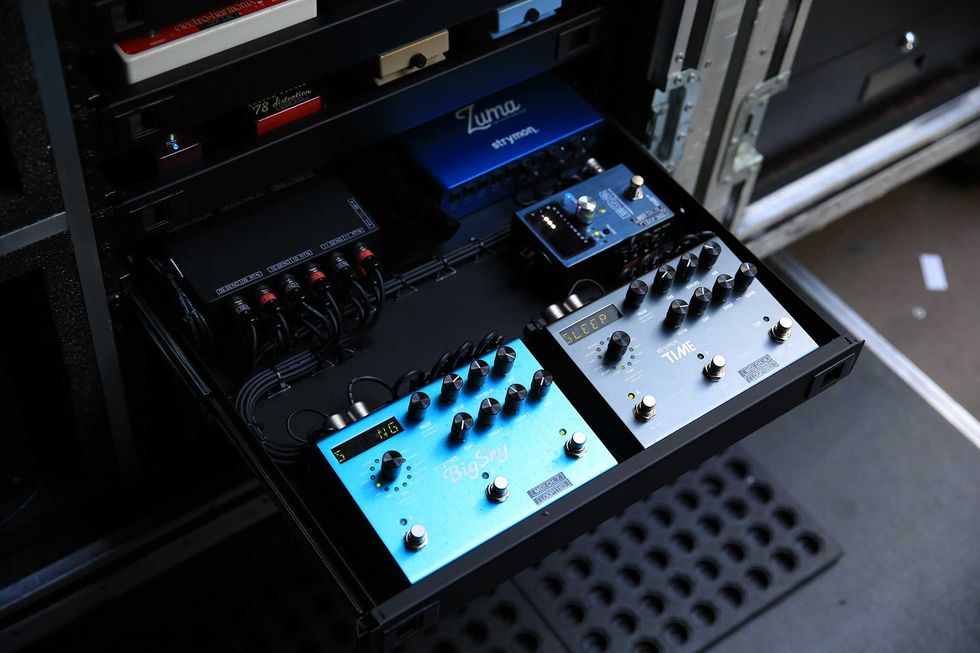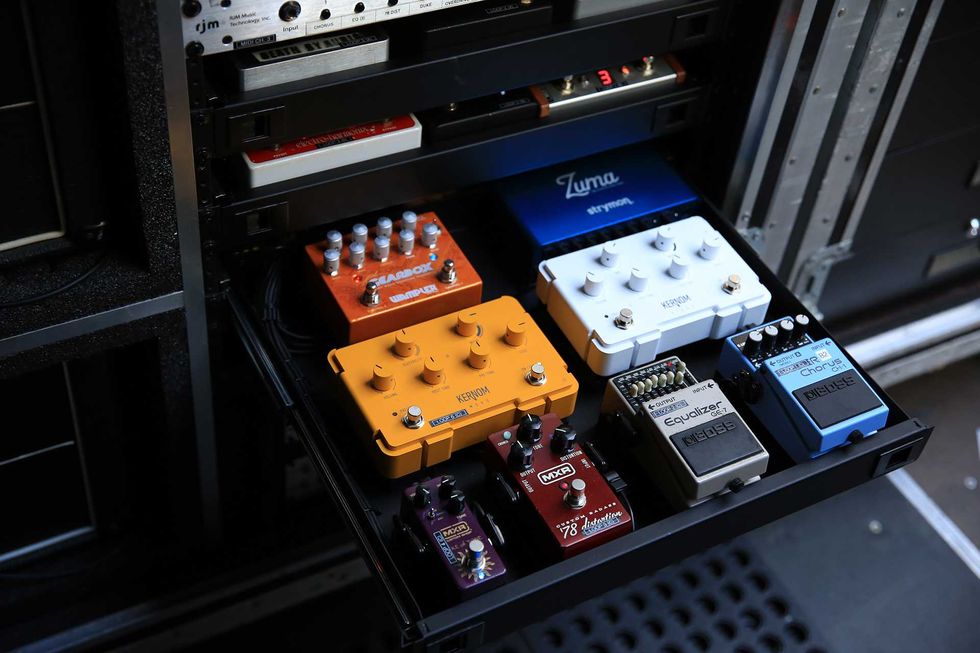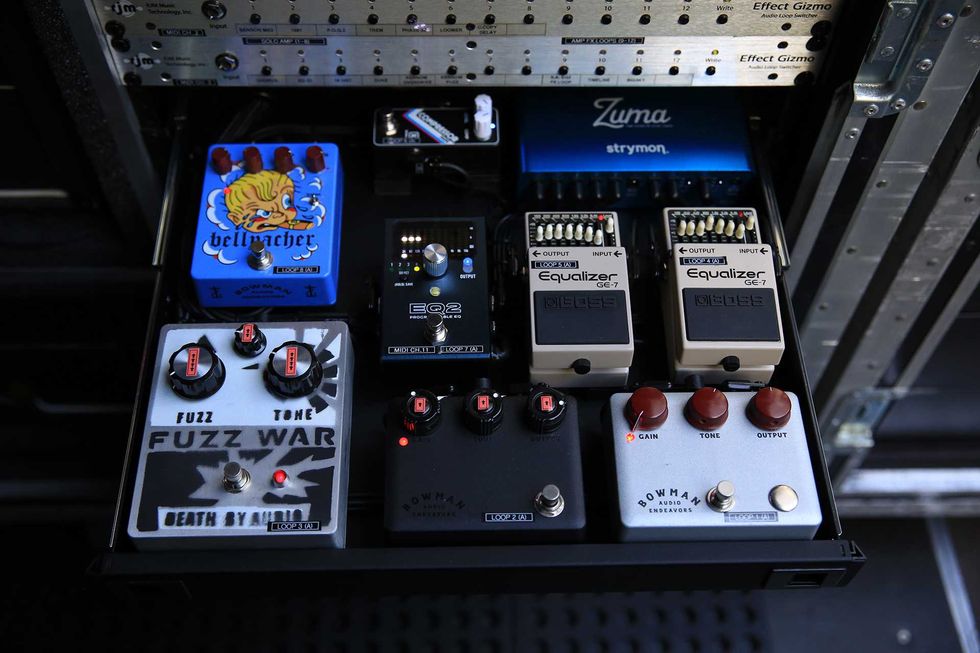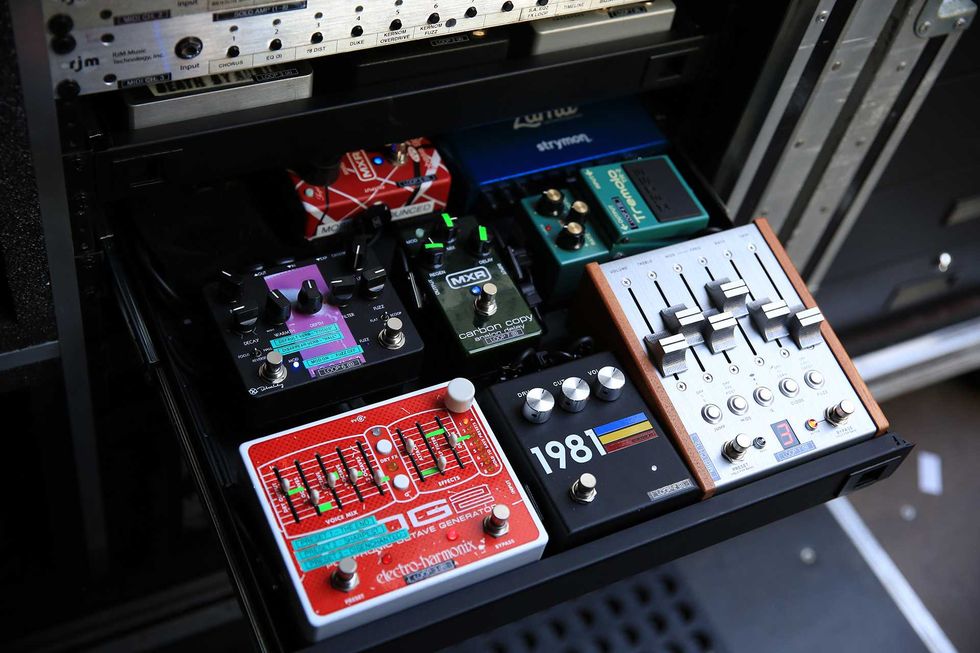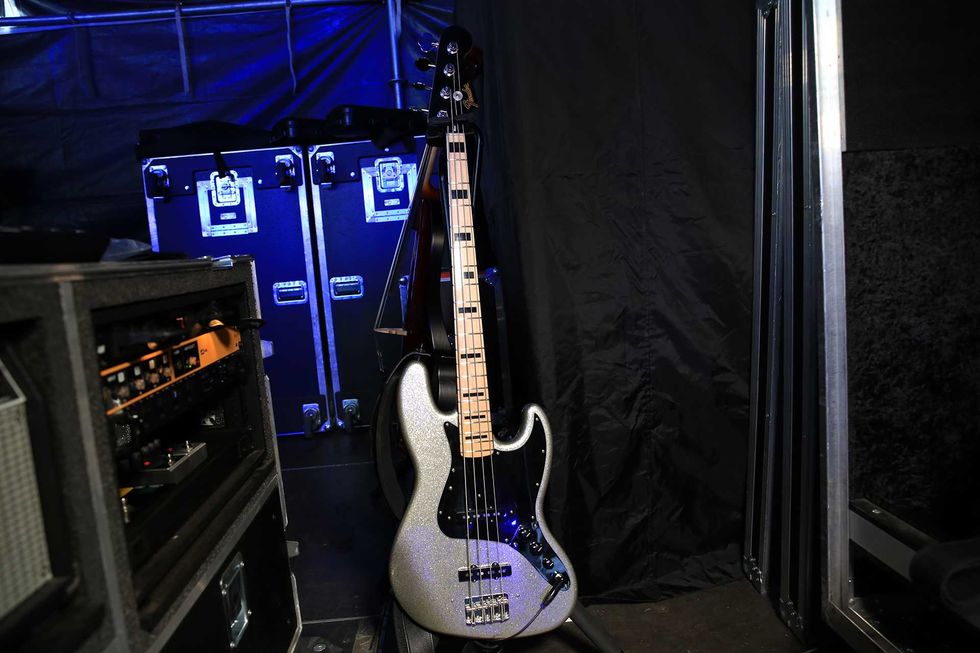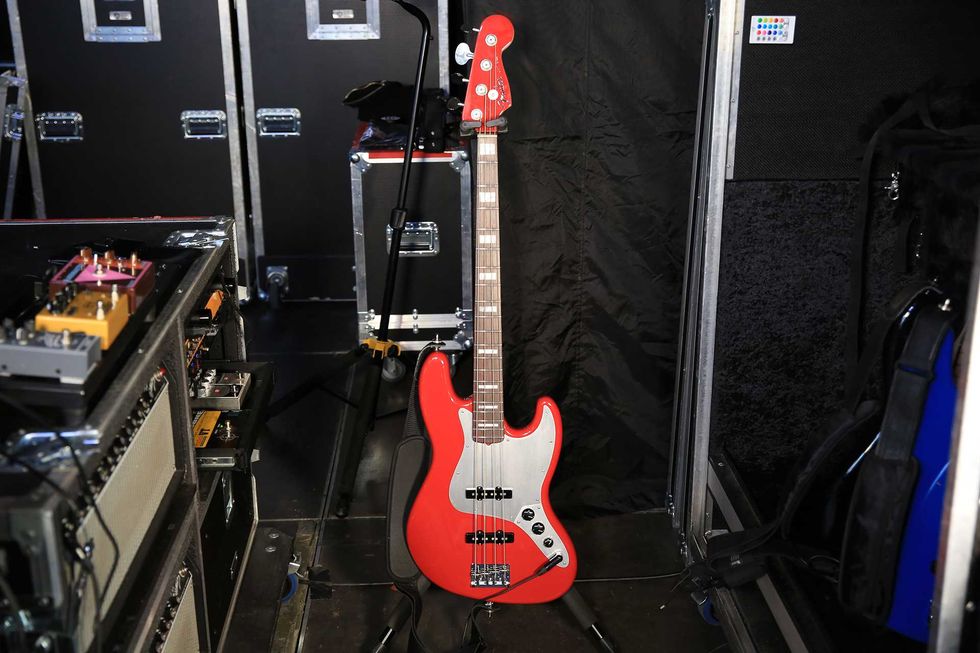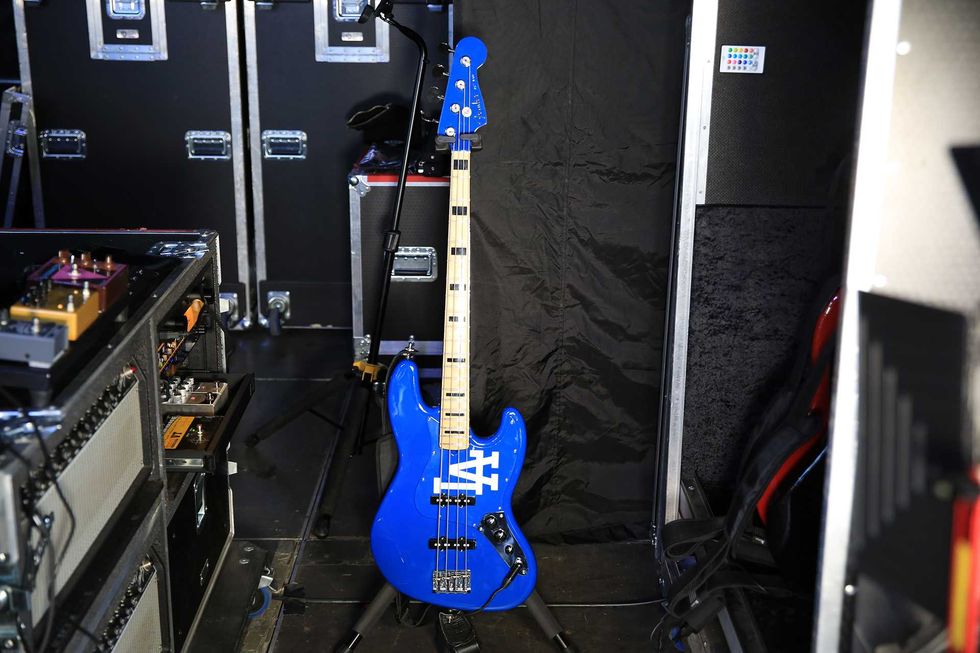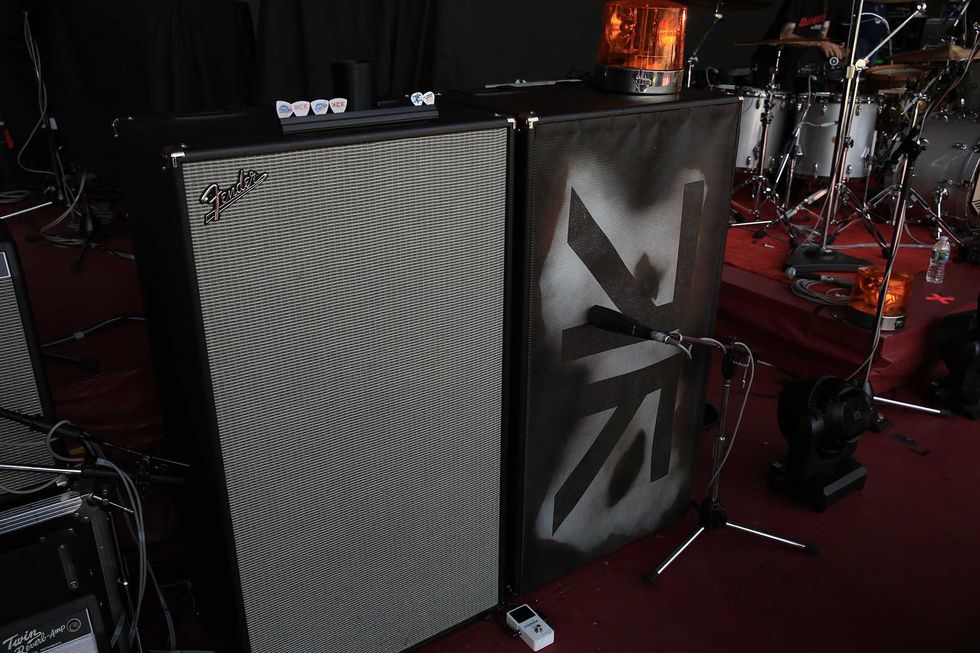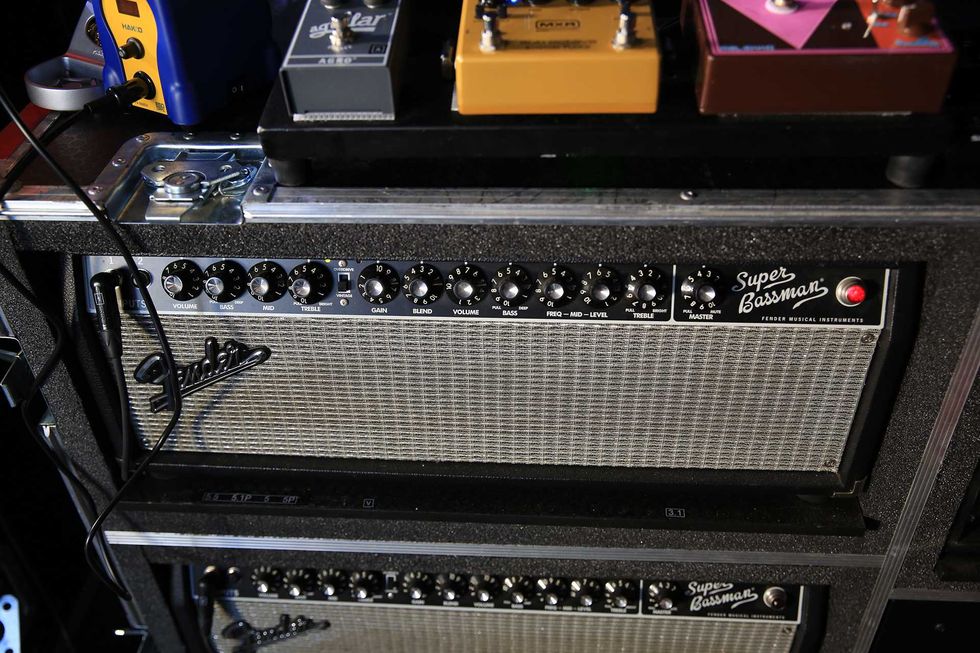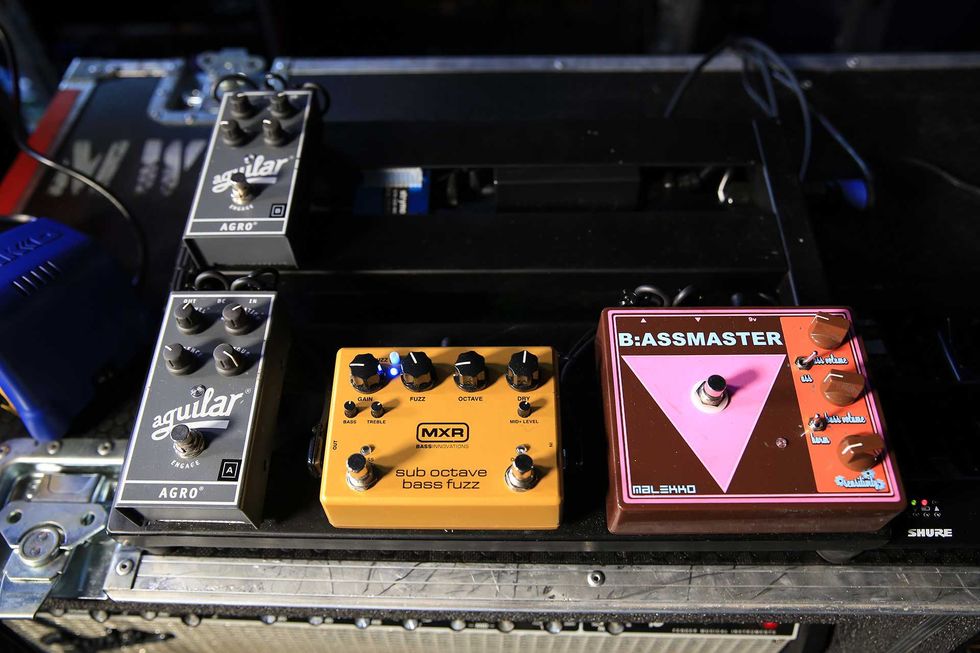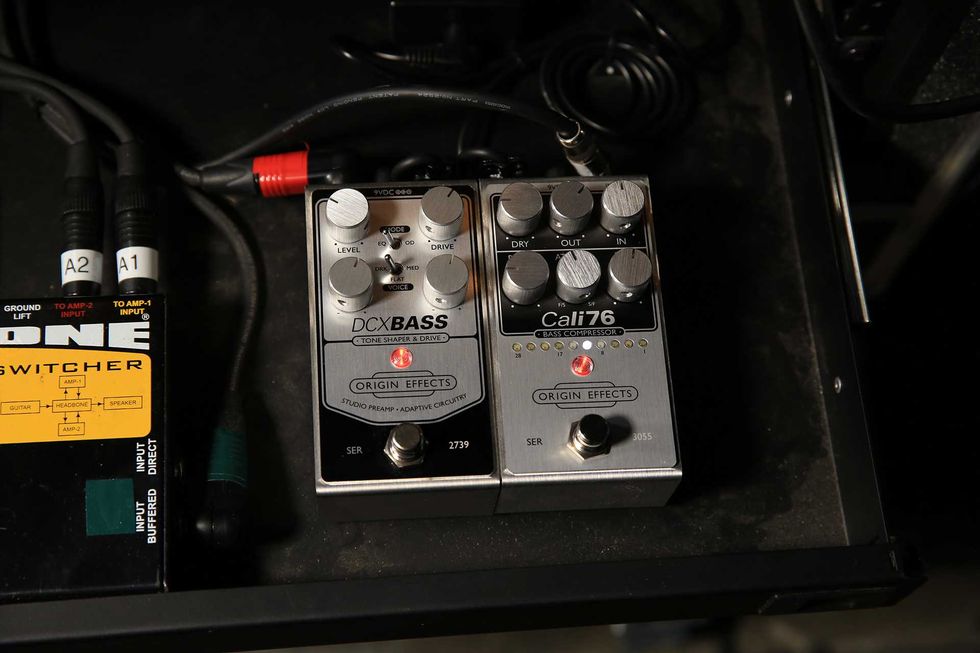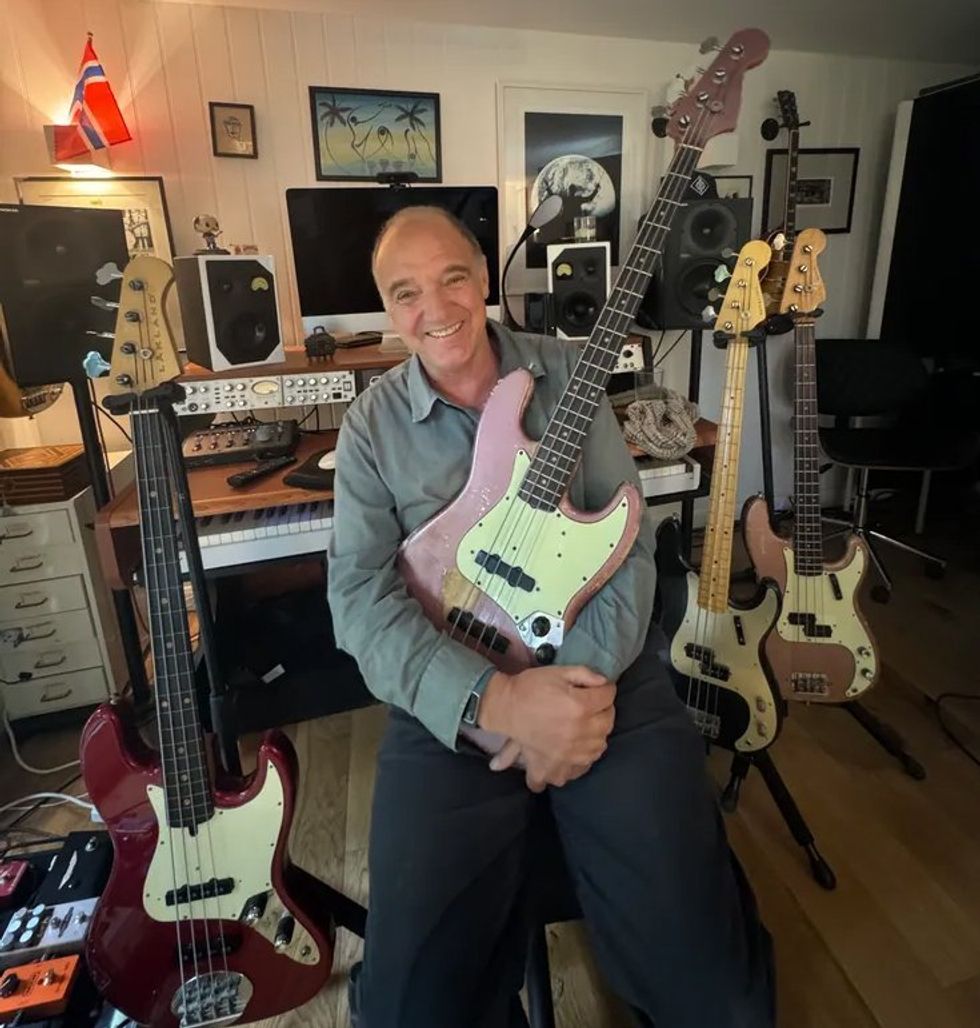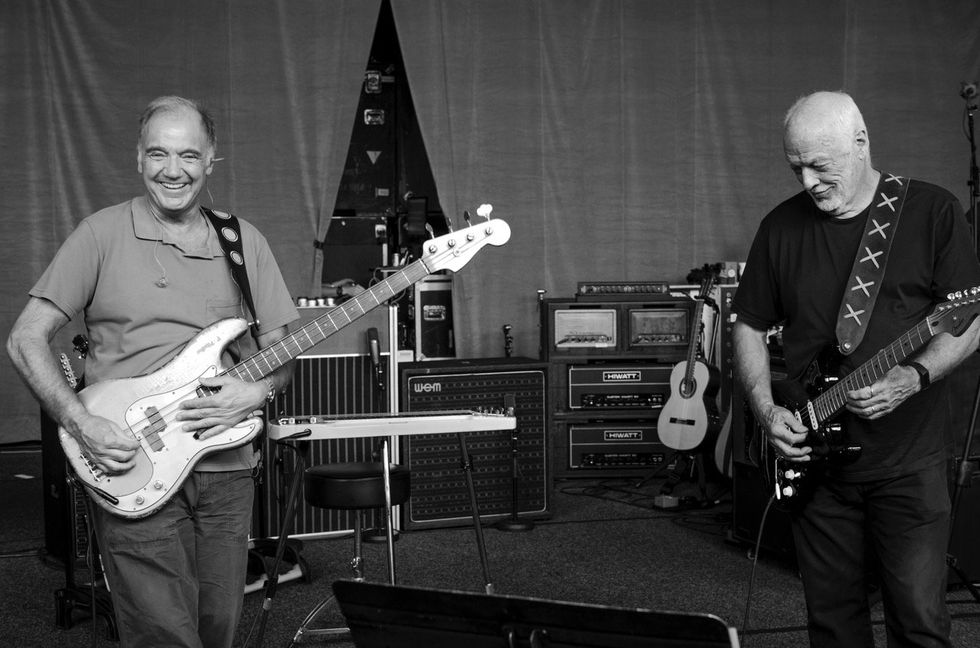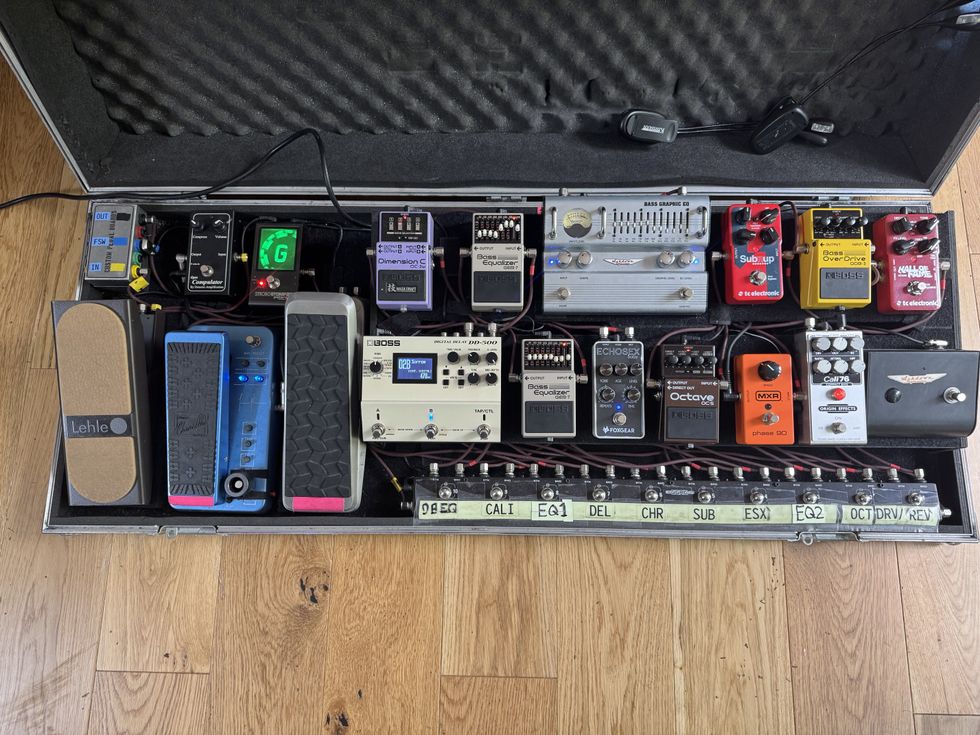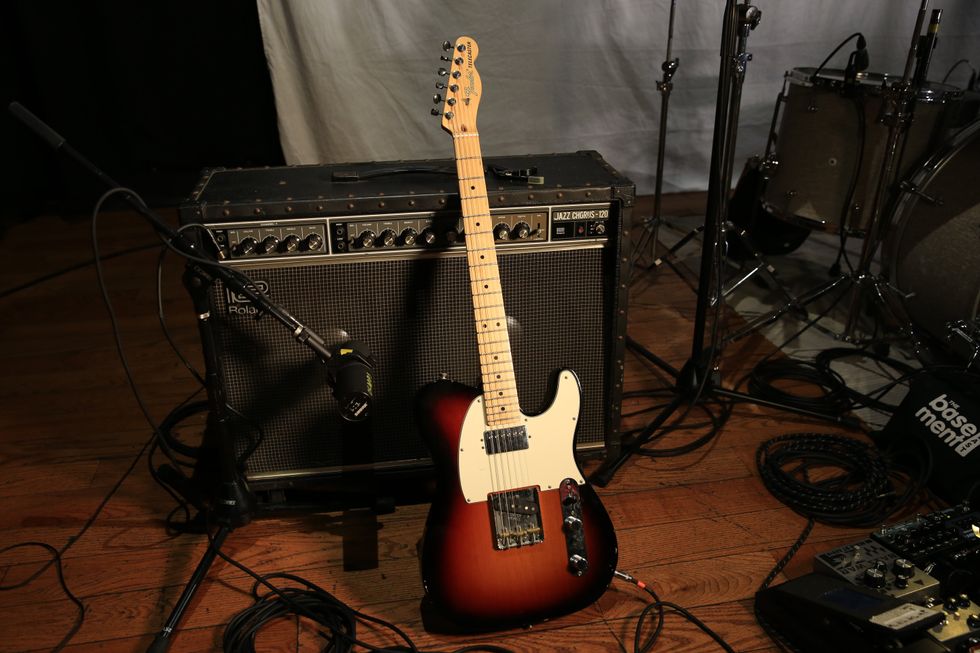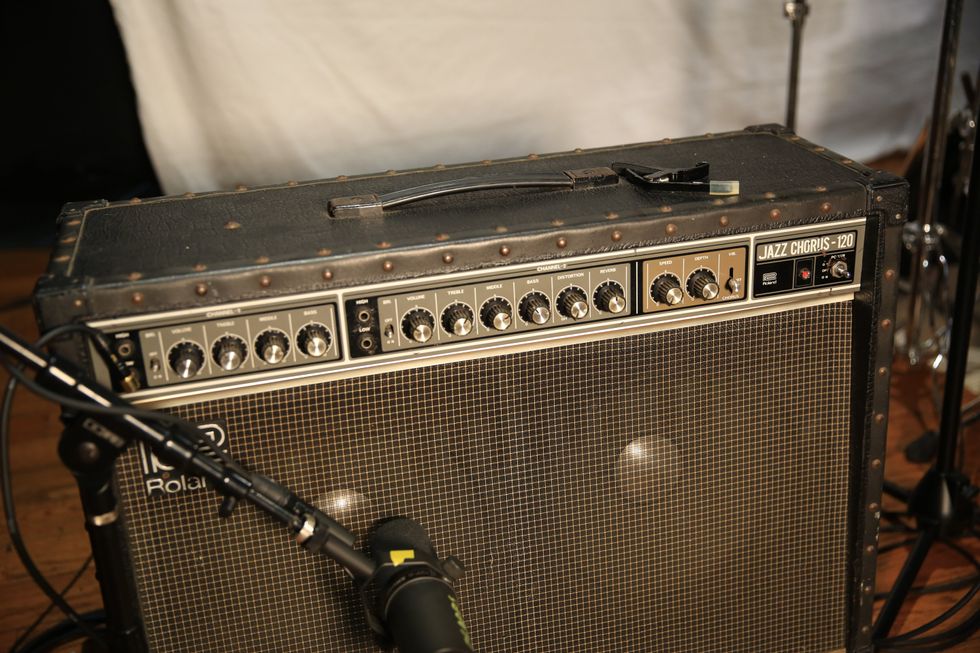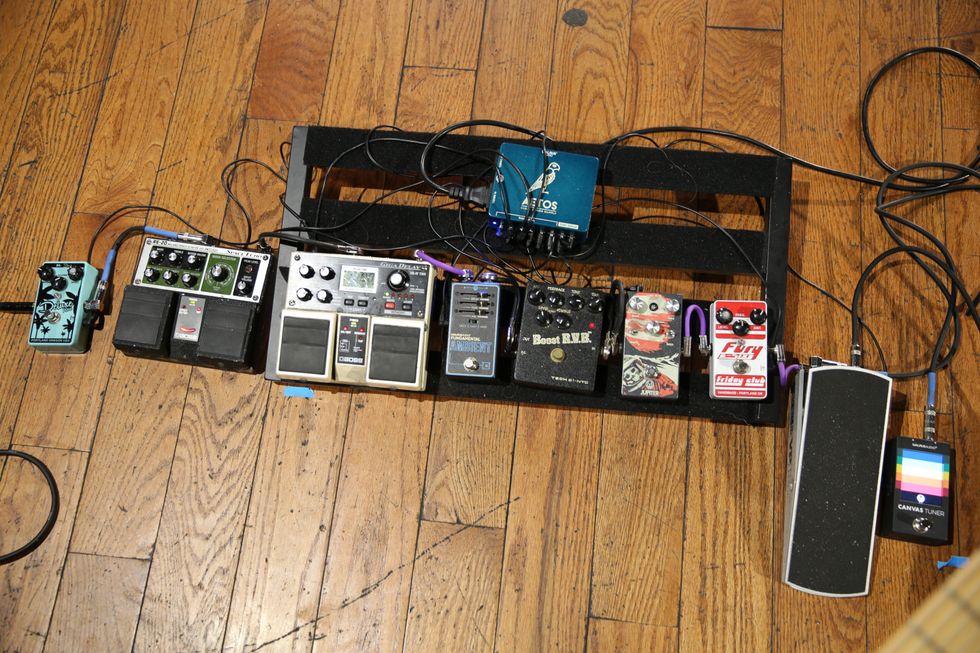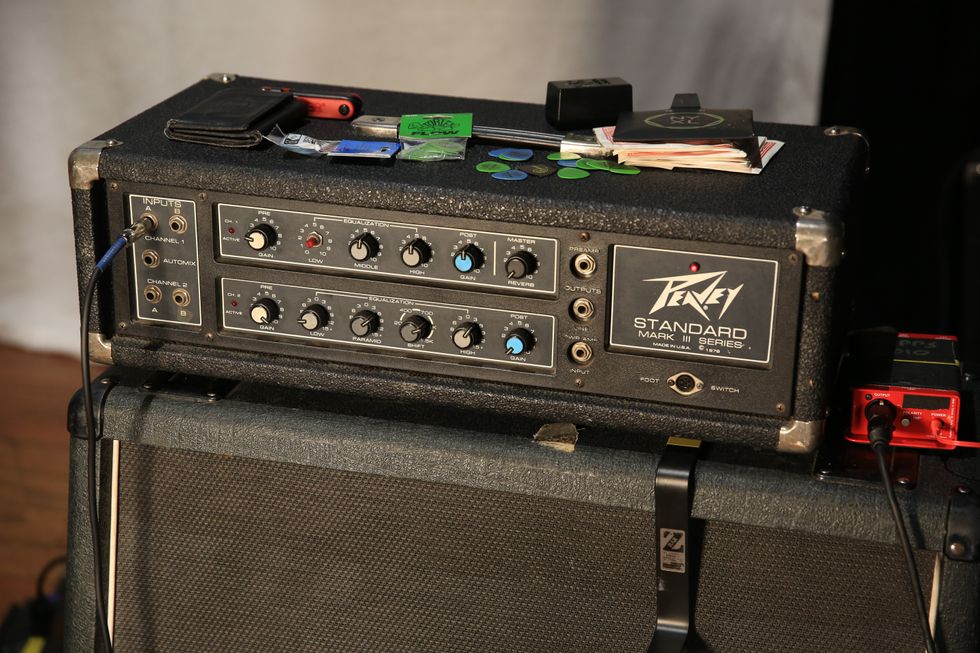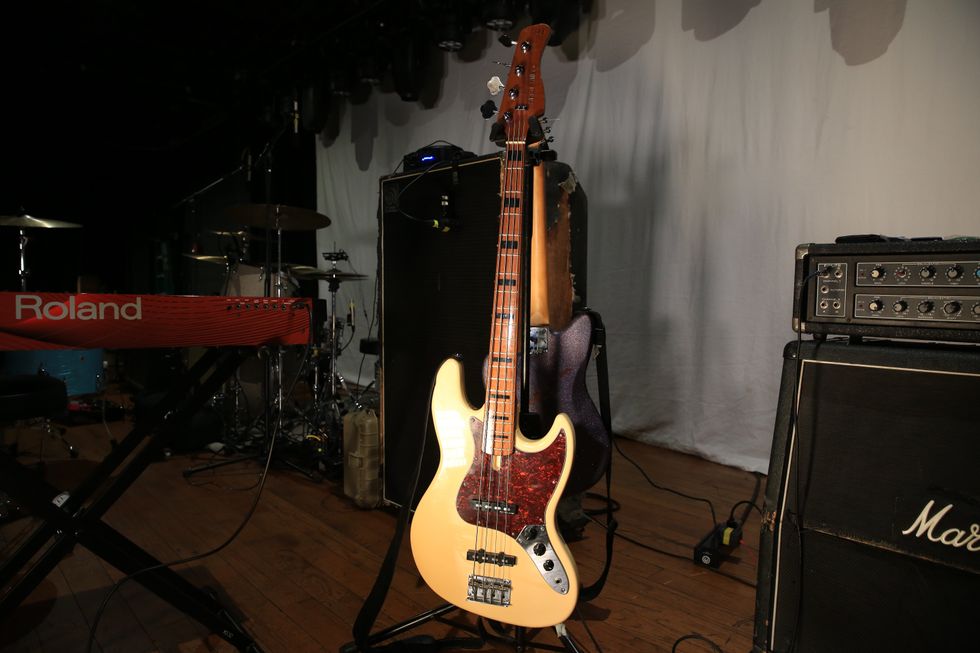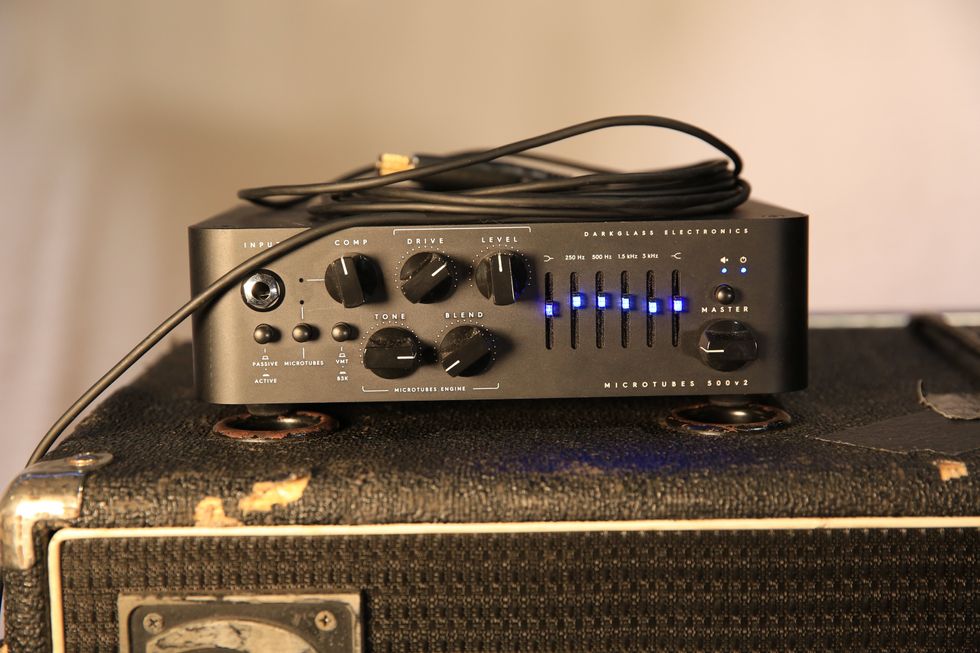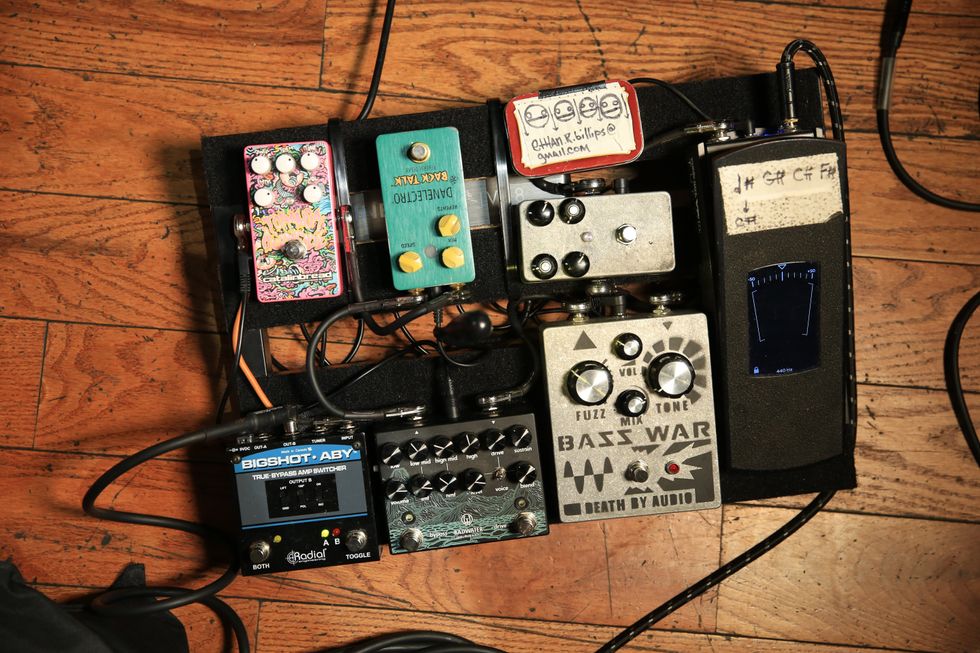Northern California is a hotbed of
custom lutherie—almost like a
year-round guitar show. One could spend
weeks in the greater Bay Area touring
shops and talking to top-flight luthiers
before having to plan the next trip to see
even more. One such master craftsman is
Scott Walker, a Santa Cruz-based luthier
who cut his teeth in the business working
for Santa Cruz Guitar Company alongside
Richard Hoover. But SCGC produces
acoustic instruments, so when Walker
heard the siren call of electric guitar, he
decided his work experience, education,
and time spent crafting electrics during
his off hours would allow him to start his
own company. In 2005, he launched Scott
Walker Guitars.
Walker fell in love with music at an early
age and started experimenting with homemade
pickups and guitar modifications
shortly thereafter. Before long, he’d combined
his interest in electronics and playing
music with his passion for drawing and
art. Shortly after high school, he knew he
wanted to be a guitar builder and was off to
the Roberto Venn School of Lutherie.
Walker handcarved over 1,000 necks
while at the SCGC, including necks for
such notable musicians as Tony Rice and
Norman Blake. When asked what he took
from his experience working almost solely
on acoustic instruments, and how it would
translate to starting an electric guitar company,
Walker explained, “Just handling the
different wood species, proportions, and
combinations really opened my eyes and
ears to the fact that it’s how you manipulate
the wood that’s the biggest factor in
the end tonal result—acoustic or electric.
It may sound strange, but like anything
else you do over and over, you develop
this other sense. So when I pick up a piece
of mahogany, rosewood, or maple, I can
just kind of hear what it’s going to sound
like—and if it wants to be a guitar.” It
should be noted that Walker just completed
his first batch of dreadnoughts, based
on Norman Blake’s old 12-fret, slope-shoulder
Martin.
When questioned about trends in
lutherie and what current one could
have the biggest effect in the next 15-20
years, Walker responded, “Wood—sustainable,
renewable woods will become
more accepted and expected. But I think
the industry has to decide on what those
woods actually are.” He doesn’t believe
that mahogany is mahogany is mahogany.
“You take three different builders and
give them the same billets, and you’ll
have three different sounding guitars. So
over the next 15 years, we as an industry
will have to decide on what guitar wood
is going to be used and be heard on our
grandkids’ records.”
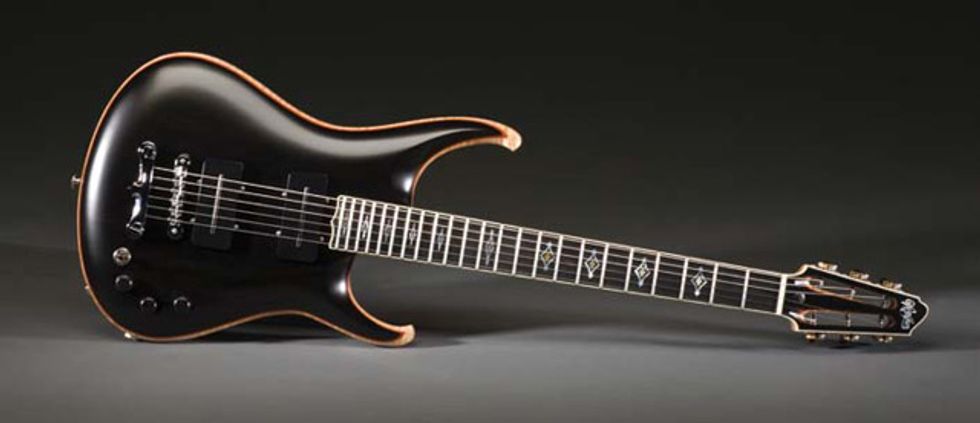
The Phantom
With the Phantom, Scott Walker pays tribute to what was one of Steve Cripe’s— the late, legendary builder—most elegant designs and last electrics played by Jerry Garcia. The model shown features an ebony top and back, along with a figured-maple core and padauk laminates. This guitar boasts custom single-coil Lollar pickups and a minimalist approach to the controls that still provide a unique variety of tonal options. There are two different preamps— an op-amp-style unity gain buffer, and an FET-style booster, both with On/Off switches—allowing a passive option, as well as a choice of either preamp, or both.
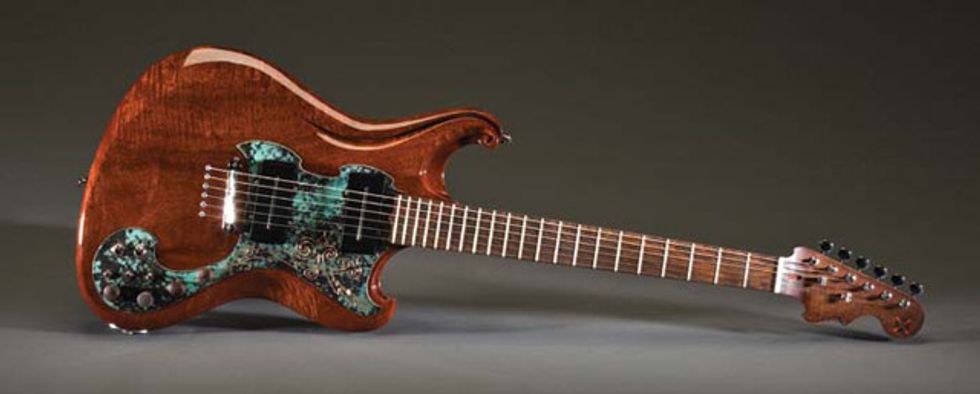
The Phoenix
In 2007, Scott Walker and Steve Kimock began discussing the ergonomics of a guitar that led to the current design of the Phoenix. It was also during this time that Kimock discussed pickups with Jason Lollar and how to go about designing the perfect single-coil that would be hum-canceling when both pickups are engaged. What they came up with was a wide, thin, blade-style single-coil shown on the Phoenix. Additionally, an extended, hidden tenon was added—on which the pickups are mounted directly—giving superb alignment, stability, increased resonance, and tone transfer. With a curly-mahogany body and neck, and a Brazilian rosewood fretboard, the Phoenix is outfitted with a solid copper pickguard for electronics shielding and to provide Walker a canvas for his patina and engraving skills.
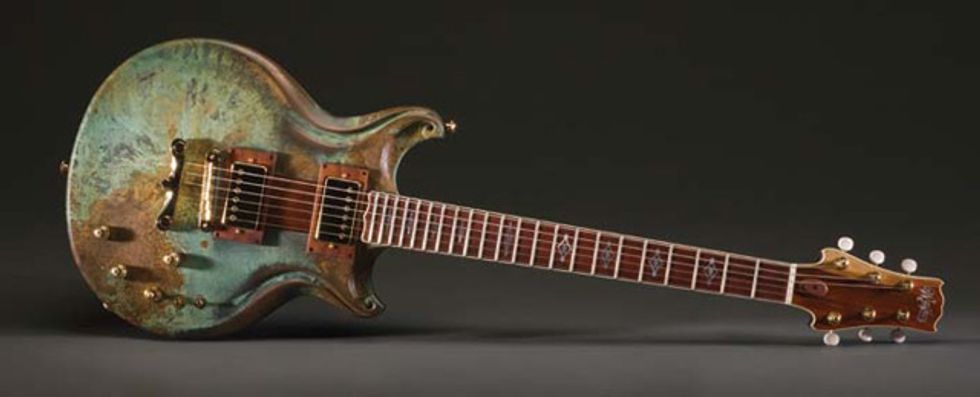
The Fathom
The Fathom has the appearance of a guitar made of solid bronze that was buried at sea for over a hundred years—but it’s constructed with alder, so it’s still light and resonant. The Fathom’s look is a finish and hardware upgrade that can be applied to any of Walker’s models. This bronze patina finish is very durable, sealed for a comfortable feel, and low-maintenance enough to not require polishing. The road-worthy Fathom is offered with a wide variety of patina techniques for players wanting to bring out their own personality on their instrument.
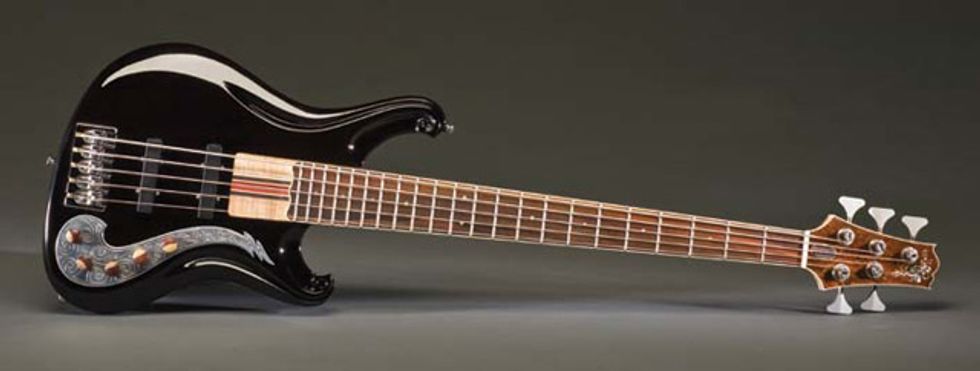
California Bass
The long tenon design, select laminates, and multiple-bolt coupling on Walker’s California Bass are designed to eliminate dead spots and promote resonance over all frequencies. Available with an alder or swamp-ash body, this bass features an Aguilar preamp, Hipshot bridge and tuners, and a maple neck capped with a rosewood fretboard. Though the pictured bass is loaded up with Lollars, the pickup configuration, as with all of Walker’s instruments, is the customer’s call.
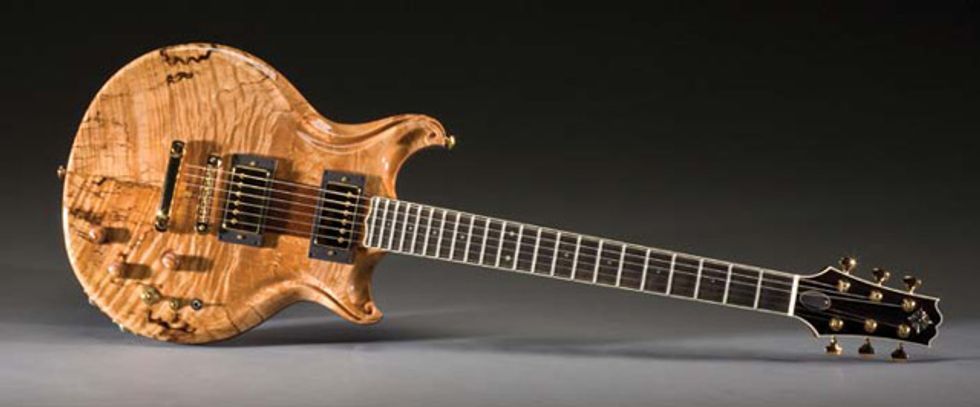
The Walker Special
When ordering a Walker Special, Walker gives his customers a choice of body-style— solid, chambered, or chambered with a soundhole. Each option is discussed when choosing woods and talking about desired tone. With a standard mahogany neck and back, buyers choose the top wood along with their preference of humbuckers. The short-scale Walker Special is also adorned with a Jangletone II preamp, Walker tailpiece, TonePros bridge, and a bound ebony fretboard and headstock.
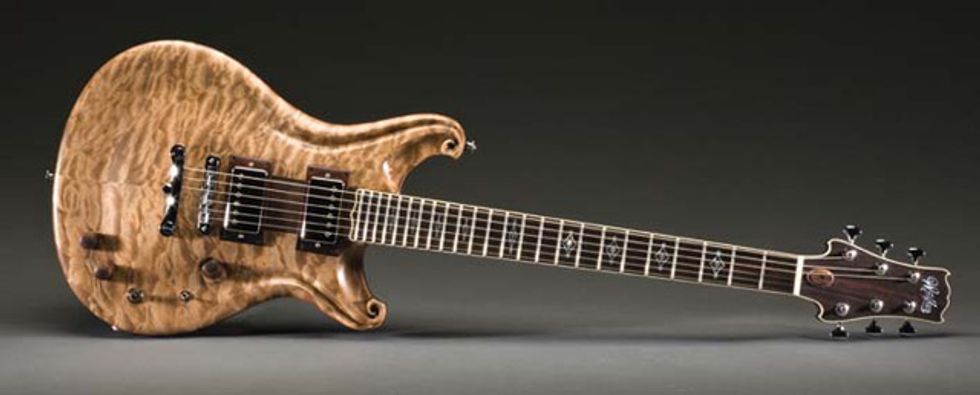
The Santa Cruz
Walker says the Santa Cruz is considered to be one of his most versatile models. With a slightly longer body (25" scale length) than the Walker Special, it too features a standard mahogany neck and back, with the customer’s choice of exotic top wood. For pickups, you can choose between Lollar Imperials or Low Winds, Fralin P-92s or Twangmasters, or Harmonic Design Z-90s. Like the Walker Special (above), the Santa Cruz also comes with an onboard Jangletone II preamp.
Pricing and Availability
Walker builds around 20 guitars a year. At press time he had 31 guitars on the production schedule, which equates to a wait time of approximately 12 months for a new instrument. All models come with a custom package that includes the choice of topwood, pickups, preamps, tuners, a Walker tailpiece and TonePros bridge, and more. Pricing for Walker’s instruments ranges from $4350 to $6250, with a variety of optional upgrades available.
scottwalkerguitars.com



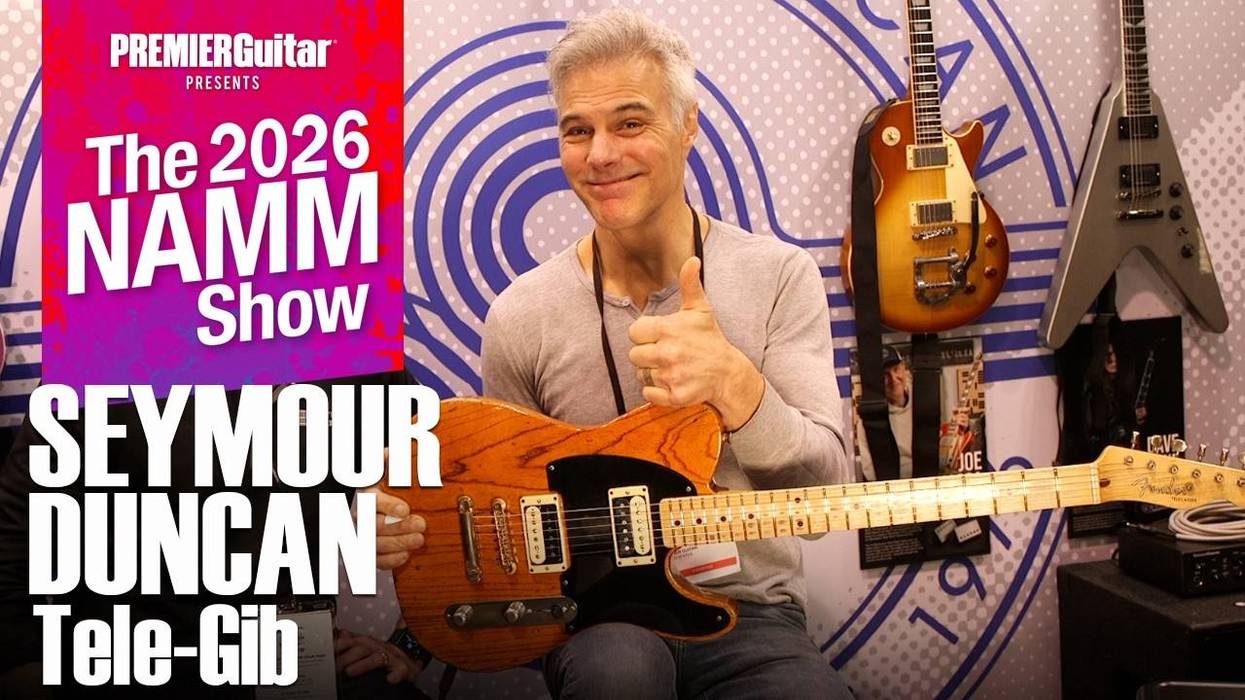
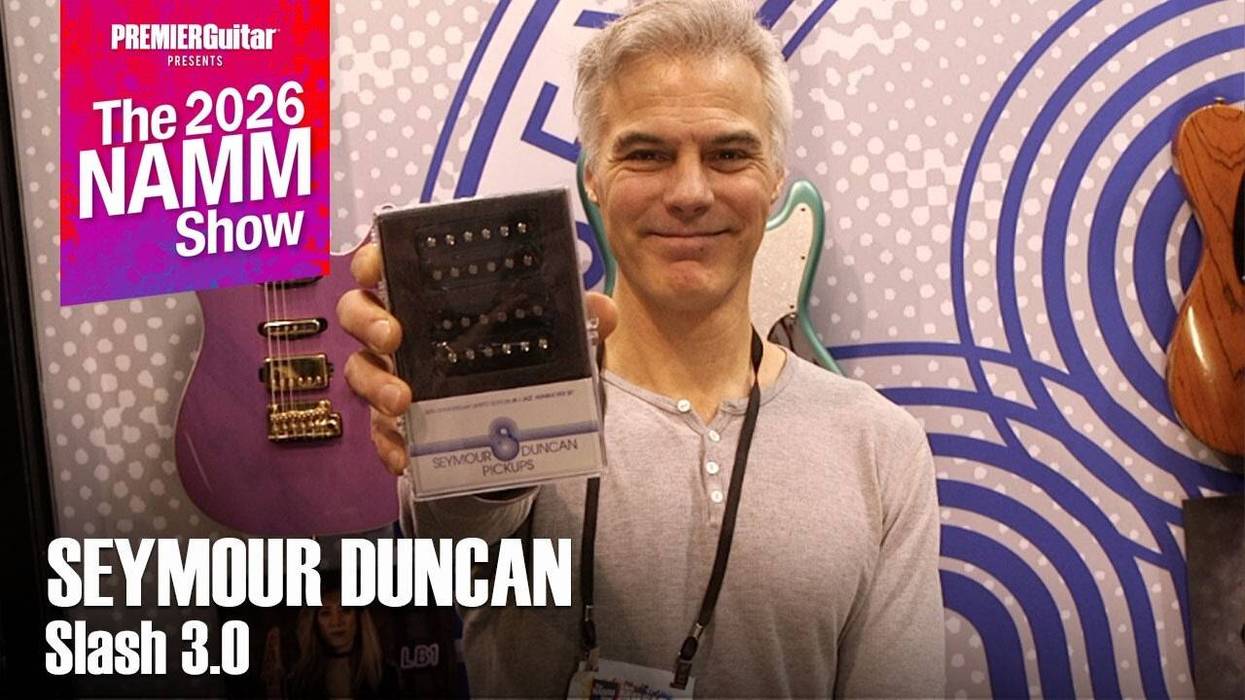
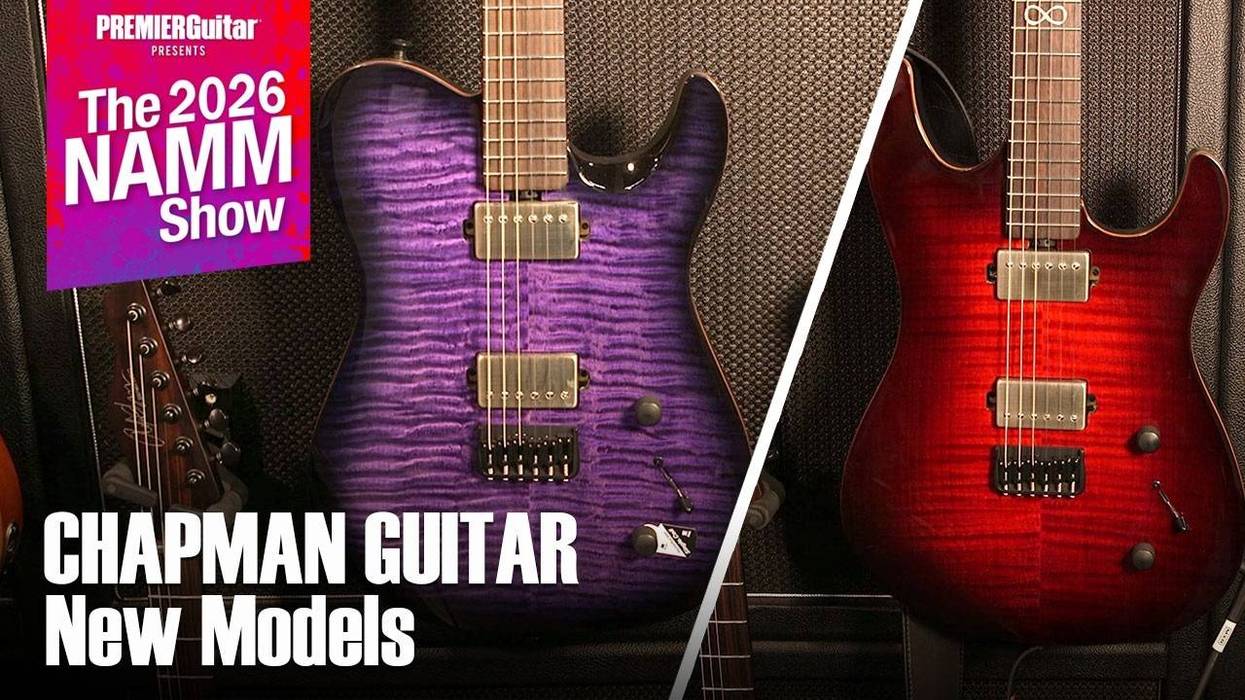
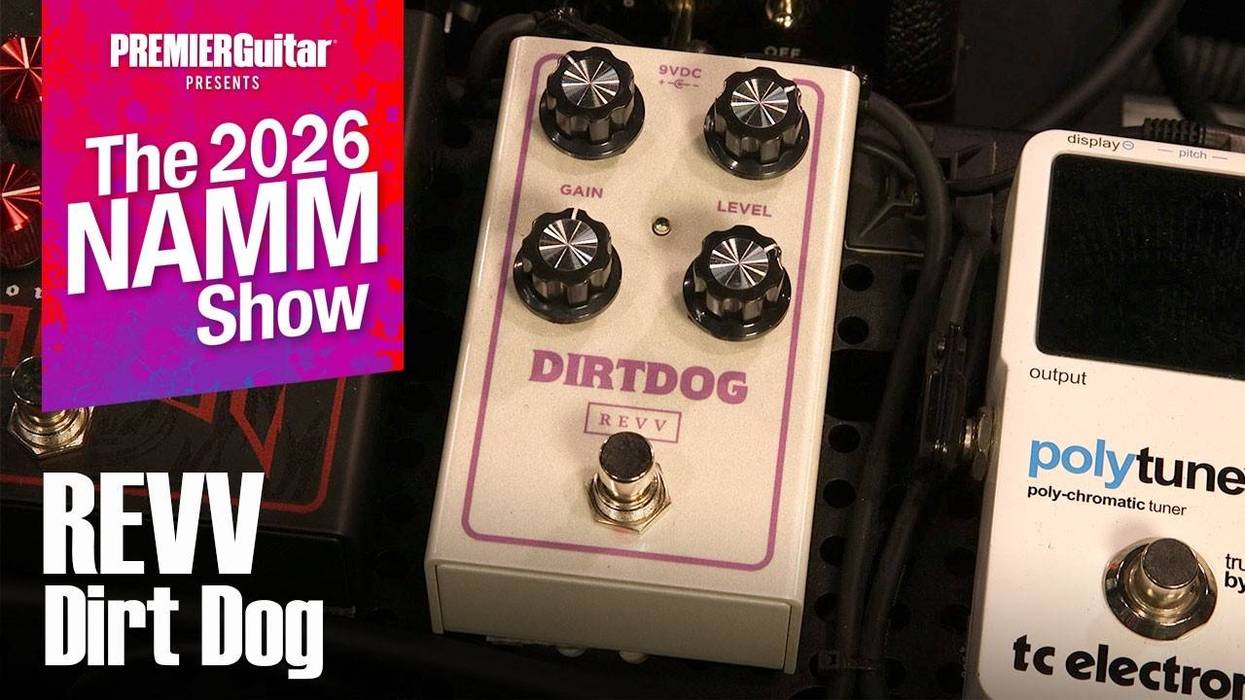
![Rig Rundown: AFI [2025]](https://www.premierguitar.com/media-library/youtube.jpg?id=62064741&width=1245&height=700&quality=70&coordinates=0%2C0%2C0%2C0)












 Shop Scott's Rig
Shop Scott's Rig